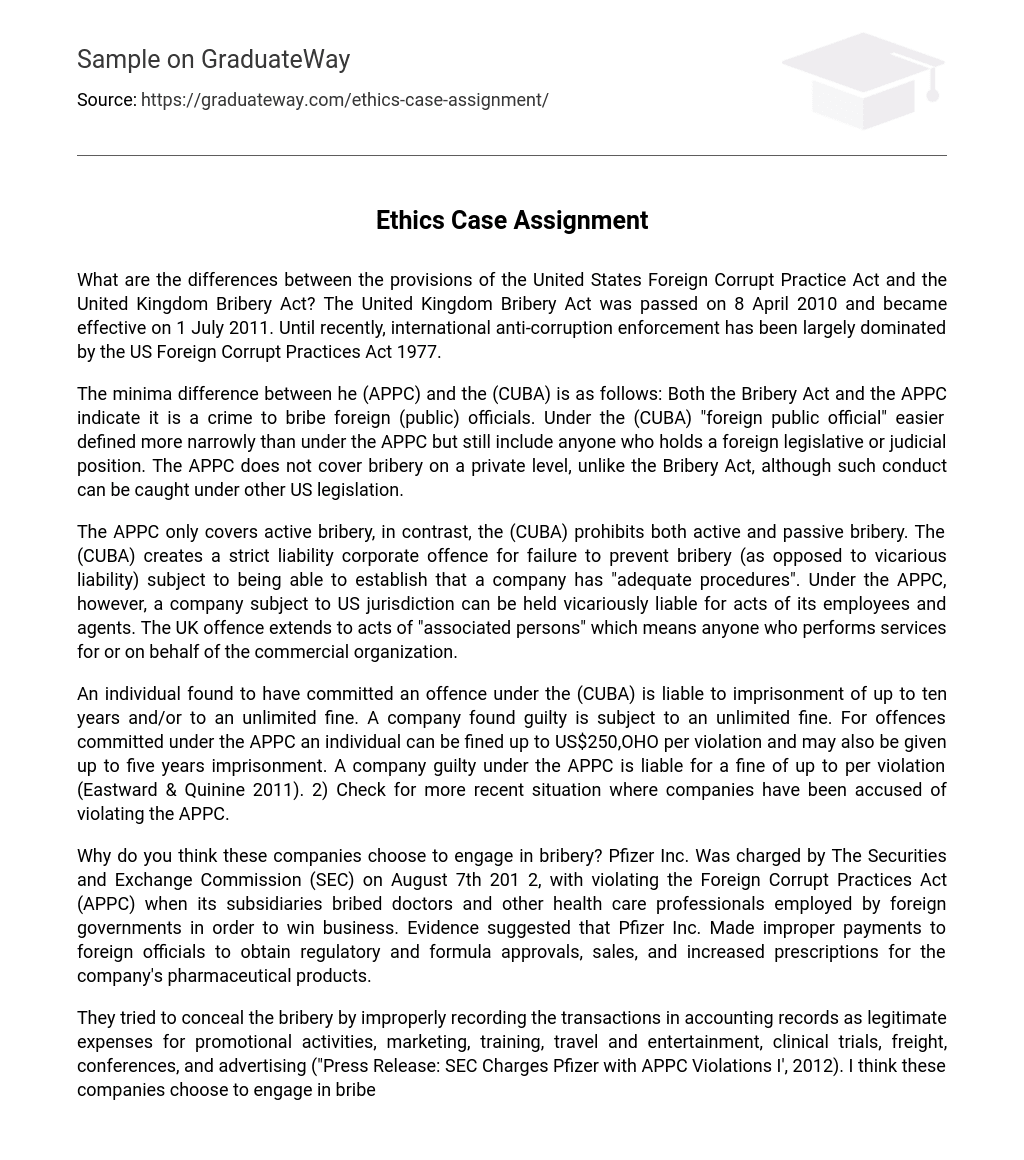The United States Foreign Corrupt Practice Act and the United Kingdom Bribery Act differ in various ways. The UK Bribery Act, which was enacted on April 8, 2010 and enforced from July 1, 2011 onwards, has its own unique characteristics. Meanwhile, the US Foreign Corrupt Practices Act of 1977 has traditionally been the main framework for global anti-corruption enforcement until recent times.
The minimum difference between APPC and CUBA is that both the Bribery Act and the APPC state that it is illegal to bribe foreign public officials. However, the definition of “foreign public official” under CUBA is narrower than under the APPC but still includes individuals in foreign legislative or judicial positions. Unlike the Bribery Act, the APPC does not address bribery on a private level, although this type of behavior can be covered by other US laws.
The Anti-Personnel Property Crime Act (APPC) focuses only on active bribery, while the Corporate Unity on Bribery Act (CUBA) encompasses both active and passive bribery. Moreover, the CUBA introduces a strict liability corporate offense for not preventing bribery, whereas the APPC holds a company accountable for acts committed by its employees and agents under US jurisdiction. Additionally, the UK offense in the CUBA applies to acts carried out by “associated persons,” who are individuals providing services for or on behalf of the commercial organization.
According to the CUBA, individuals who commit an offense may face up to ten years in prison and/or an unlimited fine. However, companies found guilty under the same law can receive fines without any limits. Under the APPC, individuals can be fined up to US$250,000 per violation and may also be imprisoned for a maximum of five years. Similarly, companies found guilty under the APPC can be fined per violation. It is recommended to review recent cases involving companies accused of violating the APPC.
Why do you believe these companies engage in bribery? On August 7th, 2012, Pfizer Inc. was charged by The Securities and Exchange Commission (SEC) for breaking the Foreign Corrupt Practices Act (APPC). This happened because subsidiaries of Pfizer Inc. bribed doctors and other health care professionals employed by foreign governments to secure business opportunities. Evidence indicated that Pfizer Inc. made inappropriate payments to foreign officials with the aim of obtaining regulatory approvals, formula approvals, driving sales, and increasing prescriptions for their pharmaceutical products.
As per the “Press Release: SEC Charges Pfizer with APPC Violations I”, Pfizer tried to conceal bribery by incorrectly documenting the transactions in accounting records as legitimate expenses for various activities like promotions, marketing, training, travel and entertainment, clinical trials, freight, conferences, and advertising. These companies often engage in bribery because it can lead to significant financial gains or losses for the organization and personal benefits for those involved. Determining whether a small gift, entertainment, or incentive constitutes bribery can be difficult. While gifts and entertainment are common in business practices globally and customer relations worldwide, they can create conflicts of interest and potentially cross into the realm of bribery. Establishing clear boundaries in such cases is challenging. One approach is to understand the organization’s policies and procedures regarding receiving minor gifts, entertainment, or incentives and then make a moral and ethical decision.
I find it challenging to make this determination in my nursing profession. When family members bring gifts to show their appreciation for the care I gave to their loved ones, I always respond with the same reply: “Thank you, but I am simply doing my job.” Due to the facility’s policy, I am unable to accept gifts. Nevertheless, a simple expression of gratitude is equally as significant as any form of reward. It is common for various individuals I encounter to express thanks for my service, and those words alone hold greater value for me than any monetary compensation.





